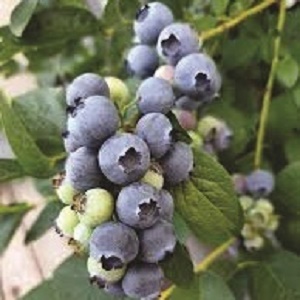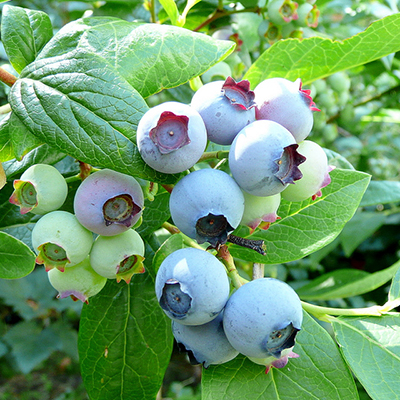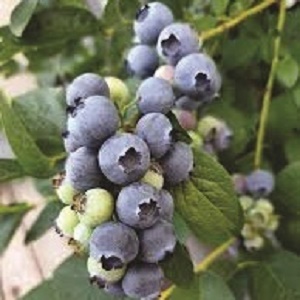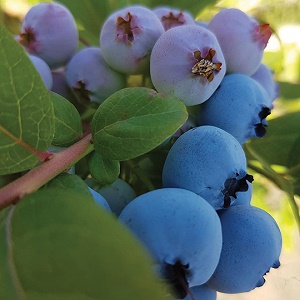High Bush Blueberry : TORO 2 year old, 2 litre pot
$25.95
(Vaccinium corybosum)
Toro was named for the strong, stocky nature of this plant. Vigorous, upright plant reaches 1.5-1.8m (5-6'). Hardiness and productivity are excellent with huge clusters of large, very firm, light blue berries hanging like grapes on the outside of the bush, making it one of the easiest varieties to pick. A narrow blooming and also ripening window means only 2 pickings are needed for harvest. Great flavour and outstanding ornamental quality of fall foliage are a bonus.
MID-SEASON
SELF-FERTILE | ZONE 4 | HARVEST: MID TO LATE JULY
1 review for High Bush Blueberry : TORO 2 year old, 2 litre pot
Only logged in customers who have purchased this product may leave a review.
Growing Tips
Everyone would love to grow blue berries. You do need to be aware though that blueberries will be more judgmental of your soil than most plants. In some areas of the country (PEI for instance) the soil is naturally acidic, meaning it has a pH of 4.0-5.5. This is exactly what blueberries like. Here in southern Ontario our soil pH is more like 7.0-7.8. In these alkaline type soils some plants such as lingonberries and blueberries find it hard to access the nutrients that are in the soil. Amending the planting site with peat moss and/or using our Blueberry Booster product is recommended.
Every Whiffletree plant order includes a copy of our 'Planting For Success' guide. Check out the Blueberry section for suggestions.





Greg (verified owner) –
Arrived in great condition with clear instructions on how to plant.